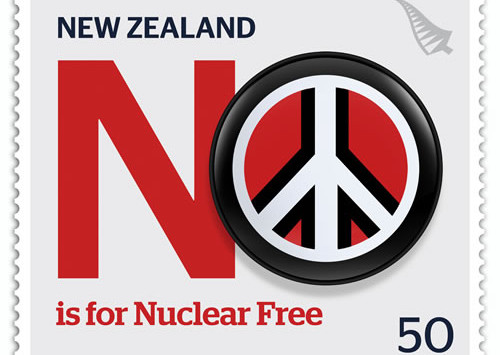Go to the Weekly Report for 4 October 2012
Go to Richard Tanter’s Policy Forum on the same topic
The New Zealand visit of US Defense Secretary Leon Panetta to announce resumption of military and intelligence cooperation was a long overdue recognition that the Lange Labour Government’s 1984 policy of banning the entry of nuclear-armed ships is not incompatible with an alliance with the United States. True, New Zealand had been knocking on the American door for some time, including sending troops to both Iraq and Afghanistan. Times have to some extent changed, and Washington and Wellington appear to have found common cause in the rise of China.
Years of broadly-based peace movement campaigning and the atmosphere of fear generated by the Reagan administration’s talk of nuclear “war-fighting” encouraged the Lange cabinet to make New Zealand the first country to establish a national nuclear weapon free zone, culminating in the passage of the New Zealand Nuclear Free Zone, Disarmament, and Arms Control Act 1987.
In the face of enormous pressure from the United States, vigorously aided by an antagonistc Hawke Labor government in Australia and by white-anting from within his Cabinet, Lange persisted, insisting that he never wanted to break the ANZUS alliance. Rather as Lange argued brilliantly in the famous 1985 Oxford University debate [video], nuclear weapons were not simply unnecessary (and unwanted) for the country’s defence, but also morally indefensible.
From the American point of view, as Bill Tow put it “ANZUS was designed to serve as part of its global network of extended deterrence”. The essence of the position Secretary of State George Schultz put to Lange was that, again to quote Tow, New Zealand’s qualification of the terms of alliance would erode
“unity of purpose and strategy between the United States and each of its security partners …[and] … impair the finely-tuned balance upon which the ultimate credibility of western deterrence rests.”
Kim Beazley, the long-serving Defence Minister in the Hawke and Keating Australian Labor governments explained the real concerns behind Schultz’s claim of a global unity of American extended nuclear deterrence – fear of the influence of the New Zealand example on peace movements in Australia and Japan:
“Basically, the Americans were not worried about the New Zealanders. They were worried about us and they were particularly worried about the Japanese, because the Americans regarded themselves as doing serious business with us and with the Japanese …The mere cut-off of military relationships with New Zealand was enough to send a signal into our two systems that this would be an unwise course to follow.”
In the decades since, there has been strong bipartisan support for the nuclear free legislation in the parliament. During Panetta’s visit conservative PM John Key made clear that there was simply no question of revisiting the nuclear-free legislation.
Hans Kristensen has pointed out that the US policy to “neither confirm nor deny” the presence of nuclear weapons on Navy ships which triggered the new Zealand nuclear exit has long been both redundant and counter-productive.


